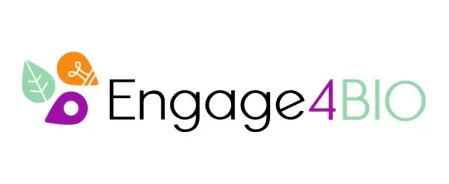Engage4BIO will strengthen circular, sustainable bioeconomy and sustainable regional development taking into account their diversity of societal, economic and cultural perspectives in processes of design thinking, co-creation, (re)training and skills development.
Engage4BIO will strengthen circular, sustainable bioeconomy and sustainable regional development through engaging quintuple helix actors – taking into account their diversity of societal, economic and cultural perspectives from five regional bio-based systems (and five associated regions) in processes of design thinking, co-creation, (re)training and skills development.
Main Objective
VALORIZATION OF LOCAL EXCELLENCE
Engage4BIO will work on five regional bio-based systems (hubs) in order to launch actions for the deployment of local bioeconomies and new ways to govern the required societal transformation and at the same time engage citizens through awareness raising and education on sustainable production, consumption and lifestyles. The hubs focus on five major value chains, namely circular and bio-based textiles (NL), agriculture and agro-food industries (HU), wood and interior (AT), bio-based and sustainable packaging (FI) and blue bioeconomy (IT).
CO-DESIGN AND ENGAGEMENT
The activities will be co-created, performed and (re-) shaped to their best advantage ensuring the inclusiveness of all actors. At the same time, the inclusion of art and design in the activities is aimed at strengthening local governance feedback loops and respective governance models, design thinking and at co-creating formats for training, retraining, mentoring and skills development fostering understanding and engagement in bio-based systems and at co-creating communication and awareness campaigns.
A SHAREABLE GOAL
The outcome will be captured within a bioeconomy development framework transferrable to European regions. It is fully open to the public by providing the resources as open educational resources (OER). Thus, exploitability reaches even beyond the targeted audience and allows access beyond borders. This transferability and openness is key, since bioeconomy implementation is often limited in regions and fails to engage on a broad level.







